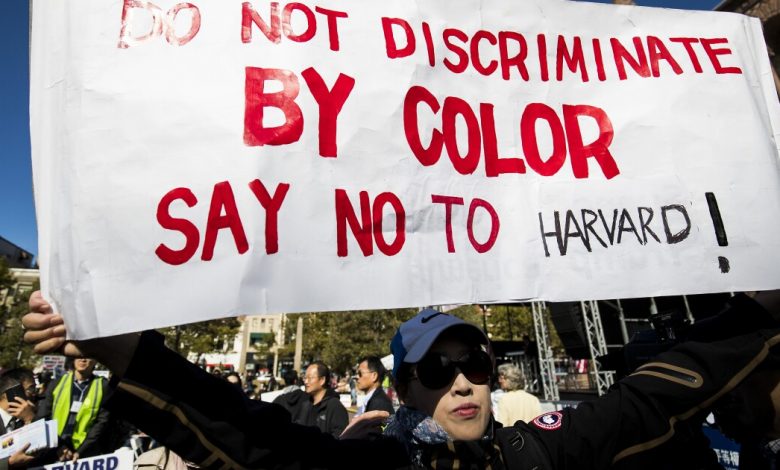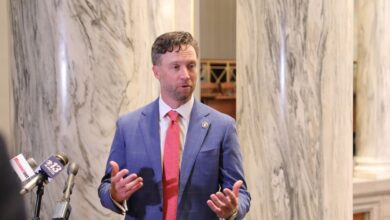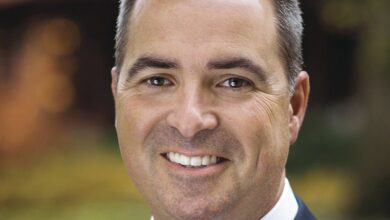Supreme Court Will Hear Admissions Cases, Suggesting Conservatives May Target Affirmative Action

[ad_1]
The Supreme Court on Monday decided to wade back into the nation’s decades-long debate over the consideration of race in college admissions by agreeing to hear two cases brought by an anti-affirmative-action group against Harvard College and the University of North Carolina at Chapel Hill. The group, Students for Fair Admissions, alleges both institutions discriminated against Asian American applicants in their admissions processes.
The outcome of the two cases, which the court consolidated on Monday, could have major implications for colleges and universities — both private and public — that consider race when deciding how to admit students. Students for Fair Admissions’ goal has been to get these case before the Supreme Court so that its firm majority of conservative justices will strike down affirmative action altogether.
The last time the Supreme Court weighed in on affirmative action was in 2016, when the justices unexpectedly ruled 4 to 3 to uphold the University of Texas at Austin’s race-conscious admissions policy. In that case, Fisher v. University of Texas at Austin, the court decided that the university could not achieve sufficient diversity in its admitted class without considering race in admissions decisions. In its ruling — made all the more surprising because it was written by Justice Anthony M. Kennedy, a conservative who cast the pivotal vote — the court explained in detail how colleges can create constitutional admissions policies that take applicants’ race into account.
That case was organized by Edward J. Blum, a conservative activist and leader of Students for Fair Admissions, often called SFFA. As with Harvard’s admissions policy, Chapel Hill’s was upheld in a federal district court. SFFA had asked the Supreme Court to hear the two cases together.
The Harvard case differs from the Texas one in that it was brought on behalf of Asian American applicants, rather than a white applicant. In a three-week trial that took place in Boston in 2018, Students for Fair Admissions’ lawyers argued that Harvard admissions officers penalized Asian American applicants by consistently awarding them lower scores on metrics used to judge students’ personalities. The lawyers alleged that the university ignored race-neutral alternatives for achieving diversity, attempted to “balance” its class by race, and sought to fulfill racial quotas, which is illegal.
But Allison D. Burroughs, the federal district judge, disagreed, and the U.S. Court of Appeals for the First Circuit upheld her decision in November. The appeals court ruled that there was no evidence of racial bias in Harvard’s admissions practices and that the university’s narrow use of race in admissions passes the “strict scrutiny” standard.
At the Supreme Court’s request, the federal government weighed in on the case in December. Elizabeth B. Prelogar, the U.S. solicitor general, argued in a brief that the court should deny SFFA’s petition and let the lower courts’ decisions stand. She argued against overturning precedent, saying that earlier Supreme Court decisions had “invited colleges and universities to rely on the permissibility of a holistic, flexible approach like Harvard’s as a benchmark in structuring their own admissions policies.” Declaring Harvard’s policy unconstitutional “would profoundly unsettle expectations” at other institutions, Prelogar wrote.
The Supreme Court’s decision to take that case will make proponents of affirmative action nervous. Since 2016, when Fisher was decided, three new justices have been appointed to the court during the term of President Donald J. Trump, whose Justice Department submitted a brief asserting that Harvard’s consideration of race violated federal law. Additionally, Chief Justice John G. Roberts Jr., who has occasionally sided with the court’s liberal bloc on other key votes, has previously made clear his stance against affirmative action. Some legal scholars worry that the court will move to overturn the landmark 2003 affirmative-action ruling, Grutter v. Bollinger, which upheld the University of Michigan Law School’s race-conscious admissions policy. The justices ruled then that the equal-protection clause of the 14th Amendment did not prohibit the law school from considering race in order to attain the educational benefits that accrue from having a diverse student body.
“There’s every reason to think they are interested in revisiting Grutter,” said Kimberly West-Faulcon, a constitutional-law professor at Loyola Law School, in Los Angeles.
The issue to watch, West-Faulcon said in an email, “is what distinctions, if any, the justices will make between Harvard using race to purposefully include, which Harvard admits to doing but says it does in line with the Grutter precedent, and the SFFA allegation that Harvard used race to purposefully exclude Asian Americans.”
But the court’s decision to take up the case does not necessarily mean the definitive end of race-conscious admissions. The court could rule on a technical issue or take a narrow view of the case by objecting to something specific to Harvard, but not banning race-conscious admissions outright.
Peter F. Lake, a professor at Stetson University’s College of Law, said that Roberts might be worried about letting the court appear too partisan and feel compelled to rule against his conservative reputation.
The perception that the court is partisan is part of what invites these types of cases, Lake said. Groups like Students for Fair Admissions see what they believe is a conservative court, and think that this is their chance to change the law. As a result, they keep challenging colleges’ admissions policies in the hope that one of the cases provides the outcome they’re looking for.
“They’re going to keep knocking at the door,” Lake said. “They’re going to keep coming and keep coming.”
[ad_2]
Source link






